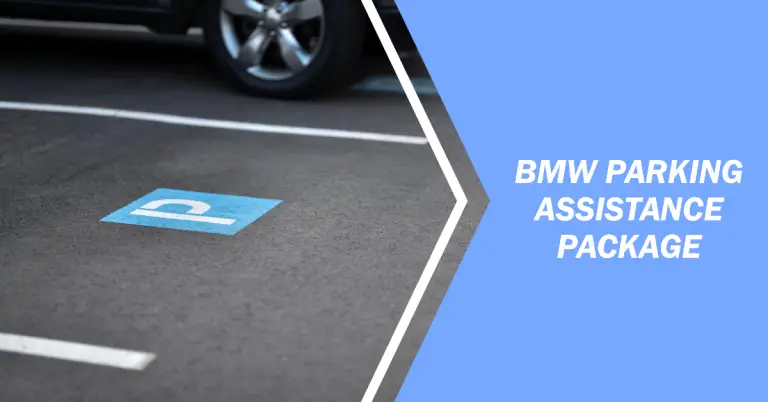What is BMW’s Innovative iCI System? A Deep Dive
BMW is one automaker at the forefront of the autonomous vehicle revolution. The company’s latest innovation in advanced driver assistance is the Intelligent Personal Assistant, also known as BMW iCI. But what exactly is BMW’s iCI system and how does it work? Read on to learn everything you need to know about iCI – what makes it unique, its various features, and when BMW plans to roll it out more broadly.
What is BMW iCI and How Does It Work?
BMW iCI stands for “Intelligent Personal Assistant”. It uses artificial intelligence and natural language processing to create an intelligent co-pilot for BMW drivers.
The system is activated simply by saying “Hey BMW”, at which point the assistant wakes up and is ready to accept voice commands and engage in conversation. iCI has the capability to understand full sentences and conversations, not just pre-defined commands. This allows for a much more natural and human-like interaction.
For example, you can say something like “Hey BMW, I’m feeling cold” and the assistant will understand the context and adjust the vehicle temperature accordingly. The AI is even able to pick up on tone and emotion in your voice.
The iCI assistant leverages machine learning and AI to improve its conversational abilities over time. The more you interact with it, the better it becomes at understanding your preferences, habits, and needs as a driver.
BMW began developing its Intelligent Personal Assistant years ago with the goal of creating an AI system tailored specifically for driving and BMW models. The automaker realized that generalized voice assistants like Siri and Alexa were not optimized for a vehicular environment and driver experience.
So BMW set out to build an intelligent AI co-pilot that could engage in natural dialogue, proactively provide useful information, and enhance driver safety. While still in the early stages, the long-term vision is for iCI to enable truly effortless and autonomous driving.
Features and Capabilities of BMW iCI
BMW’s Intelligent Personal Assistant comes equipped with a robust set of features that aim to make the driving experience more enjoyable, productive, and safe. Here are some of the key capabilities:
- Conversational Voice Assistant – As mentioned, iCI goes beyond basic command-based voice control. The assistant carries on full, natural language conversations to accomplish tasks. You can phrase requests however you want and it understands.
- Controls In-Car Functions – Use your voice to control music selection and volume, navigation, phone calls, climate settings like A/C and heat, news updates, and more. For example “Hey BMW, navigate to the closest gas station” or “play my driving playlist”.
- Vehicle Information and Stats – Ask your BMW iCI assistant for info about your vehicle like fuel level, mileage, tire pressure, oil levels, and service history. It has full access to your BMW’s on-board computer.
- Driving Tips and Recommendations – The assistant proactively gives you recommendations for driving based on time of day, traffic, weather conditions, and your driving habits. It might suggest an alternate route to avoid a jam, remind you to take a break on long trips, or tell you to turn on headlights as it’s getting dark.
- Preference Learning – BMW iCI has machine learning capabilities that get to know your preferences over time. It will learn the temperature you like to set, music genres and playlists you ask for, frequently driven routes, and other habits to auto-adjust settings and give better recommendations.
- Passenger Recognition – In BMW vehicles with interior cameras, the iCI assistant can recognize different vehicle occupants. It learns individual preferences for music, climate settings, frequent destinations, and other favorite options for a more personalized experience.
- Continuous Learning – With natural language processing at its core, iCI continually improves its conversational abilities the more you interact with it. Over time, it becomes better at interpreting requests, understanding context, and offering relevant recommendations.
While already robust for a first generation AI driving assistant, BMW plans to continuously improve and expand iCI’s capabilities. Additional autonomous driving features are in the works that will further demonstrate the potential of AI to transform the automotive experience.
How is iCI Different From Other Vehicle Assistants?
At first glance, BMW’s Intelligent Personal Assistant may seem similar to the voice assistants coming built-in to an increasing number of vehicles. Most major automakers now offer some version of Alexa, Siri, or Google voice control. However, BMW’s iCI has some key advantages:
- More Advanced AI – iCI uses more advanced natural language processing and machine learning. This allows it to have far more natural, conversational interactions compared to basic command-based assistants. iCI aims to be an intelligent co-pilot, not just take voice commands.
- Specialized for Driving – General assistants like Alexa and Siri are optimized for home use, search queries, and general information. BMW iCI is specifically tailored for the driving environment and BMW models. It understands driving terminology and provides auto-focused info.
- Proactive Recommendations – Unlike passive assistants that only respond to commands, iCI proactively gives recommendations tailored to driving. It might suggest taking an alternate route or turning on wipers based on traffic and weather.
- Learns Driver Habits – With machine learning capabilities and integration with BMW’s vehicle sensors, iCI learns driver patterns and habits to provide personalized recommendations. Generic assistants don’t customize to individual driver behavior.
- Upgrades Over Time – Being brand-specific allows BMW to continuously upgrade iCI’s capabilities. Since it’s not a static third-party product, BMW can add advanced AI features to create an effortless experience.
While Alexa and Siri offer convenience for basic tasks, BMW’s goal with iCI is to create an AI that can take an active role in improving the driving experience. It aims to progress self-driving technology while still keeping the driver’s preferences in mind.
When Will BMW iCI Be Available?
BMW began rolling out its Intelligent Personal Assistant in select 2021 model year vehicles. Initial models equipped with iCI include:
- 2021 BMW 3 Series
- 2021 BMW 5 Series
- 2021 BMW 8 Series
- 2021 BMW X5
- 2021 BMW Z4
These models come equipped with built-in microphones and speakers to enable the iCI assistant. BMW plans to expand support to additional models and model years in the future as the technology develops.
The automaker takes an incremental approach to debuting autonomous driving capabilities like iCI. Features are introduced gradually across more model lines before becoming standard. This allows time for continual improvement based on real-world testing and usage data.
In upcoming years, look for BMW to enhance iCI’s capabilities and integration. Some possibilities could include:
- Integration with BMW’s Advanced Driver Assistance Systems for more autonomous functions
- Enhanced passenger recognition and personalization
- Expanded conversational abilities and integration with smart home technology
- Seamless syncing across multiple devices and touchpoints
As machine learning and artificial intelligence continue to see rapid advancement, BMW plans to stay at the forefront. Systems like iCI that offer effortless and intelligent interactions are a critical part of BMW’s vision for the future of driving.
The Road Ahead for AI Assistants
BMW was one of the first automakers to fully commit to developing an AI-powered conversational assistant. The increasing integration of systems like BMW iCI highlights the pivotal role artificial intelligence will play in the future of transportation.
Here are some of the key benefits advanced AI driving assistants are poised to unlock in the years ahead:
- Safer driving – AI that can proactively react to dangerous situations faster than humans will greatly reduce accidents. Assistants can alert drowsy or distracted drivers and intervene if needed.
- Reduced driver workload – Managing navigation, system controls, and information overload can cause fatigue. AI assistants will handle these tasks, allowing humans to focus just on the driving.
- Convenience – As assistants understand more natural language and context, interacting with your vehicle becomes effortless. Simple voice commands or conversations can handle everything from music to complex navigation.
- Personalization – Assistants that recognize individuals and learn habits make the experience more customized. Your perfect settings for seat position, temperature, music, and more are activated instantly.
- Enhanced capabilities for elderly or disabled drivers – Those unable to drive independently can regain autonomy with the help of smart AI. Voice commands give independence without physical interaction.
- Paving the road for fully autonomous vehicles – AI driving assistants are important interim steps toward the ultimate goal of fully self-driving cars. As advanced autonomy features roll out gradually, broad acceptance and trust are built.
BMW clearly has big plans to continue pushing Intelligent Personal Assistant to its full potential. But they are not alone – all major automakers are investing heavily in AI assistants, advanced driver aids, and ultimately autonomous vehicles. Competition in this space will spur rapid innovation.
The Road to Autonomous Driving Continues
BMW’s Intelligent Personal Assistant provides an intriguing glimpse into an autonomous, AI-driven future. As one of the most advanced conversational assistants available from major automakers today, iCI demonstrates the huge strides made towards self-driving vehicles.
While we may be years away from fully autonomous cars being commonplace, BMW’s iCI system in today’s models leverages AI and machine learning to enhance convenience, safety, and the overall driving experience. As this technology continues to rapidly progress, systems like BMW iCI will play an integral role in ushering in the next era of effortless automated transportation.
The road ahead is sure to be an exciting journey. BMW has reiterated its commitment toremaining at the forefront in developing intelligent mobility solutions. As artificial intelligence transforms expectations of how human and machine can seamlessly interact, BMW appears well positioned to lead the way with innovative systems like iCI.
So while it may not enable full self-driving just yet, the capabilities already offered by BMW’s Intelligent Personal Assistant provide a compelling look into the automotive future. Drivers who experience iCI’s natural conversational abilities and intuitive recommendations will get a taste of what’s to come. It’s part of BMW’s vision to create an effortless mobility experience, achieved through the power of artificial intelligence.







